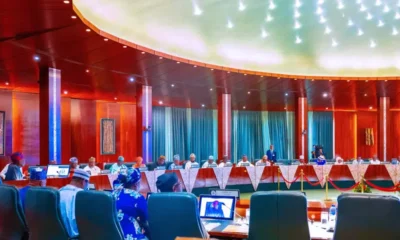The Federal Government has disbursed over N107 billion to no fewer than 900,000 beneficiaries across Nigeria’s six geo-political zones.
The News Agency of Nigeria (NAN) reports that the disbursements is under the Presidential Grant and Loan Scheme for Micro, Small, and Medium Enterprises (MSMEs).
The Managing Director of the Bank of Industry (BOI), Dr Olasupo Olusi, made this known during a sensitisation event for the programme held in Kano State.
Olusi, represented by Aminu Yusuf, BOI’s Regional Manager in Kano, revealed that Kano State alone accounted for 51,033 beneficiaries, with disbursements valued at over N12.54 billion.
He stated that N50 billion from the intervention fund was being allocated to support one million nano businesses, including market women, vulcanisers, food vendors, tailors, and others, with N50,000 grants across all 774 local government areas in Nigeria.
More loans, he assured, would be made available to MSMEs to help grow their businesses and stabilise the economy.
Olusi explained that the disbursements were part of the N200 billion Presidential Intervention Fund, a flagship initiative of President Bola Tinubu’s administration aimed at empowering MSMEs and revitalising Nigeria’s manufacturing sector.
According to him, the programme offers loans of up to N5 million at a 9 per cent single-digit interest rate per annum, with a three-year tenure and no collateral required.
“This initiative is more than a policy directive, it’s an investment in Nigeria’s future.
“It’s a commitment to fostering inclusive economic growth by unlocking the potential of our most dynamic business segments,” he said.
According to him, MSMEs accounts for 96 per cent of all businesses in Nigeria, provide 84 per cent of employment, and contribute nearly 50 per cent to the nation’s GDP.
“In Kano, we see firsthand how MSMEs bring life to the local economy. They create jobs, provide livelihoods, and drive innovation,” he added.
Olusi acknowledged ongoing challenges faced by MSMEs, including limited access to finance and high operational costs, noting that the intervention fund is designed to address these hurdles.
He also highlighted the remaining N75 billion under the Manufacturing Sector Fund (MSF), targeted at tackling challenges faced by Nigerian manufacturers such as rising input costs, infrastructure gaps, and supply chain disruptions.
On his part, Bashir Jafa, State Manager of the Kano office of the Small and Medium Enterprises Development Agency of Nigeria (SMEDAN), said the agency was actively sensitising business owners on how to access the grants and loans.
One of the beneficiaries, Hauwa Ali, a fashion designer, praised the initiative and encouraged other small business owners to take advantage of the opportunity to grow their enterprises.

 NEWS2 years ago
NEWS2 years ago
 MUSIC4 years ago
MUSIC4 years ago
 MUSIC4 years ago
MUSIC4 years ago
 MUSIC2 years ago
MUSIC2 years ago






















